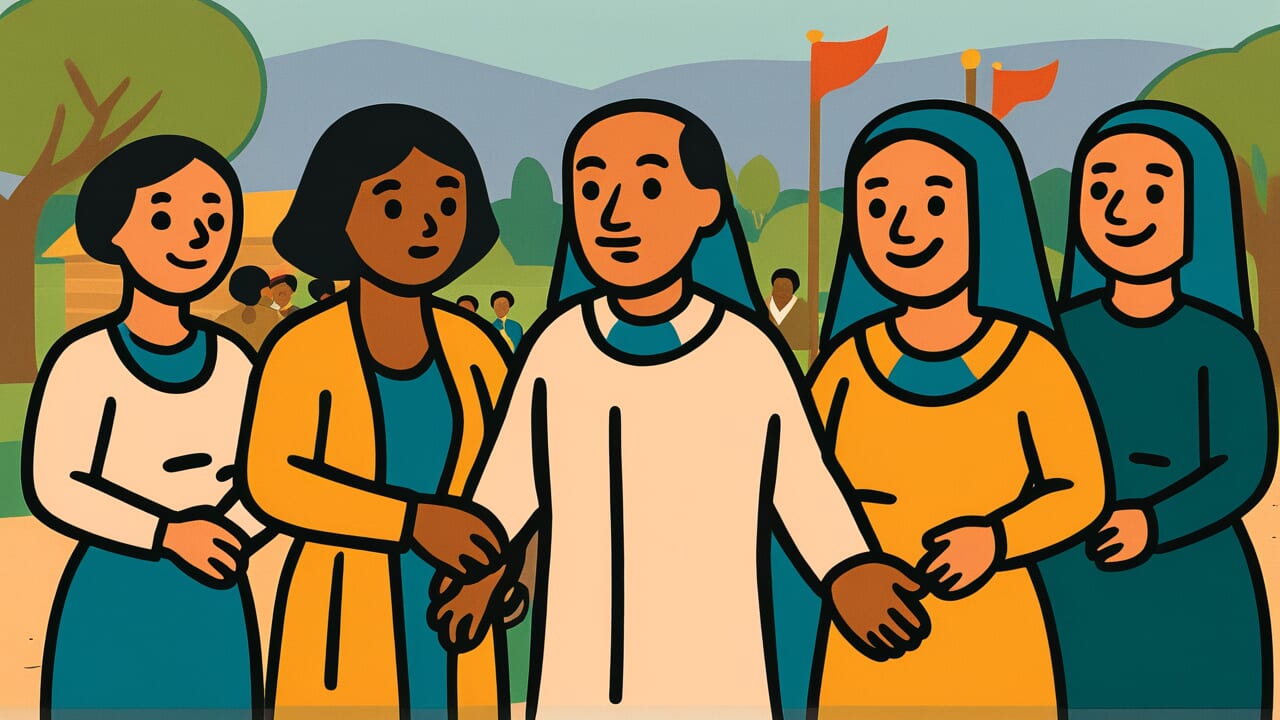How to Read “Zulus’ honour is their life”
“Zulus’ honour is their life”
[ZOO-looz ON-er iz thair lahyf]
The word “Zulus” refers to the Zulu people of South Africa.
Meaning of “Zulus’ honour is their life”
Simply put, this proverb means that personal integrity and honor are more valuable than life itself.
The saying speaks about the Zulu people’s deep commitment to honor. It suggests that living without dignity is worse than not living at all. The proverb highlights how some cultures place moral principles above personal safety. When someone’s reputation or integrity is at stake, they would rather face death than shame.
Today, we use this idea when talking about standing up for what’s right. It applies when someone refuses to lie even if it costs them a job. It shows up when people won’t betray their friends despite pressure. The concept appears in situations where doing the right thing comes with serious personal costs.
This wisdom reveals something powerful about human values. It shows that some things matter more than survival itself. People often discover this truth when facing difficult moral choices. The saying reminds us that a life without honor might not be worth living.
Origin and Etymology
The exact origin of this specific proverb is difficult to trace precisely. It appears to reflect traditional Zulu cultural values that have been passed down through generations. The saying likely emerged from observations of Zulu warrior culture and social customs.
During the 19th century, the Zulu kingdom was known for its strong military traditions. Honor and bravery were central values in their society. Warriors were expected to show courage in battle and maintain their dignity. These cultural expectations shaped how people viewed the relationship between honor and life.
The proverb probably spread through oral tradition first. Later, it may have been recorded by missionaries, traders, or colonial administrators. As people learned about Zulu culture, sayings like this one traveled beyond their original community. Today, the phrase is used to describe any situation where honor matters more than safety.
Interesting Facts
The Zulu language belongs to the Bantu family of languages spoken across southern Africa. Zulu culture traditionally emphasized ubuntu, a philosophy meaning “I am because we are.” This concept connects individual honor to community wellbeing. The idea that personal integrity affects the whole group helps explain why honor was considered so important.
Usage Examples
- Coach to player: “He promised to train daily but skipped practice all week – Zulus’ honour is their life.”
- Parent to child: “You gave your word to help but disappeared when needed – Zulus’ honour is their life.”
Universal Wisdom
This proverb touches on a fundamental tension in human nature between survival and dignity. Throughout history, people have faced moments where they must choose between staying alive and maintaining their moral standing. This choice reveals something deep about what makes us human rather than just biological creatures seeking survival.
The wisdom speaks to our need for meaning beyond mere existence. Humans are perhaps the only species that can value abstract concepts like honor more than physical life. This capacity suggests that our sense of self extends beyond our bodies to include our reputation, integrity, and moral identity. When these non-physical aspects of ourselves are threatened, we experience it as a kind of death already.
The proverb also reveals why societies develop codes of honor in the first place. Groups that value integrity over individual survival often become stronger and more trustworthy. When people know that others will keep their word even at personal cost, cooperation becomes possible. This creates communities where trust can flourish. The individual sacrifice for honor ultimately serves the collective good, even though it may cost the individual everything. This paradox shows how personal virtue and social strength are deeply connected.
When AI Hears This
Honor works like invisible money that families pass down through generations. Unlike regular wealth, this social currency grows stronger when protected consistently. A single shameful act can destroy decades of family reputation instantly. Parents unconsciously invest their entire lives building this inheritance for their children.
This creates a hidden economic system that most people never recognize consciously. Families accumulate trust and respect over generations like compound interest in banks. Children automatically inherit their family’s social standing without earning it themselves. The calculation becomes simple: temporary survival versus permanent family wealth.
What fascinates me is how humans instinctively understand this complex inheritance system. They make split-second decisions weighing individual life against generational benefits. This seemingly irrational choice actually maximizes long-term family success across centuries. The beauty lies in sacrificing personal gain for invisible wealth that outlasts any individual lifetime.
Lessons for Today
Understanding this wisdom means recognizing that some principles are worth defending regardless of consequences. This doesn’t mean being reckless or seeking conflict unnecessarily. Instead, it means identifying which values are truly non-negotiable in your life. Most people discover these core principles only when they’re tested by difficult circumstances.
In relationships, this wisdom shows up when we choose honesty over convenience. It appears when we refuse to betray confidences or abandon friends during tough times. The challenge lies in distinguishing between genuine matters of honor and simple pride or stubbornness. True honor usually involves protecting others or upholding justice, not just defending our ego.
Living with this understanding requires careful thought about what really matters. It means being prepared to face consequences for doing what’s right. This kind of integrity builds trust with others and creates self-respect that survives external challenges. The goal isn’t to seek dramatic confrontations, but to develop the inner strength to stand firm when it truly counts. Most people find that having clear principles actually makes life easier, not harder, because it eliminates the exhausting work of constantly deciding what kind of person to be.



Comments